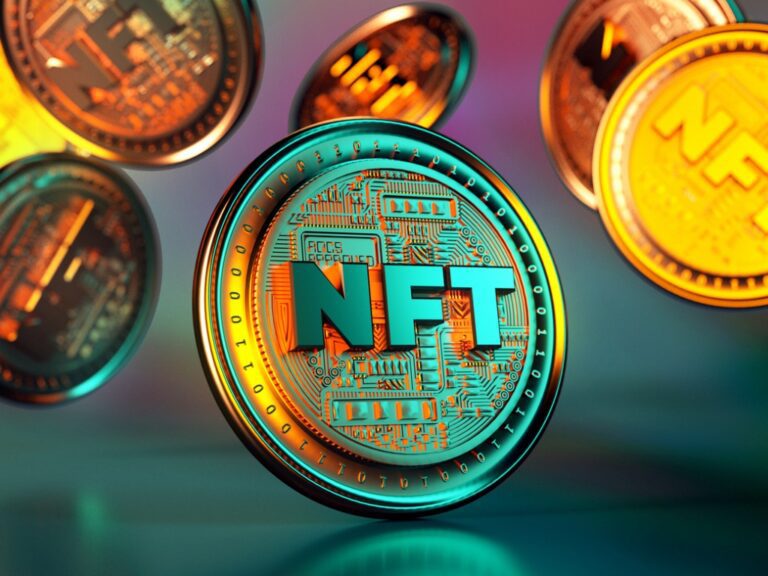Protecting Intellectual Property and Ownership in NFT Business Models
By Pritesh Shah, Matthew Bacal, and Steve McNew
April 15, 2024

Pri Shah provides advice and strategic counseling at Davis Polk on the intellectual property, data privacy and technology aspects of transactions.
Matt Bacal advises Davis Polk clients on IP, technology, and data privacy issues, and is the corporate lead for Davis Polk’s Data Privacy & Cybersecurity practice.
Steve McNew, Senior Managing Director at FTI Technology, provides strategic advice and expert services for companies in the blockchain and digital assets sector.
The dawn and expansion of web3 has opened a new universe of opportunities for companies to invest in and develop creative business models, customer engagement, and brand affinity programs.
These advancements are developing at an opportune time, as 79% of customer loyalty professionals surveyed said they’re planning to revamp their existing program in the next few years. With web3’s expansion, the focus on protecting intellectual property rights and ownership should be a top priority.
Immersive experiences that are available only through web3, metaverse, and nonfungible token-based offerings are increasingly being used to extend customers into virtual reality, embedding brand storytelling into unique NFTs, and empowering creativity and engagement.
Use Cases
Several global brands, such as Time and Lufthansa, have already implemented web3-based engagement and loyalty programs. These programs are designed to personalize customer offerings, form deeper connections between the brand and customers, and establish revenue-generating secondary markets.
Additionally, high-end fashion brands including Dolce & Gabbana and Gucci have launched content offerings available only in the metaverse and exclusive to preferred customers.
Consumers can benefit by enjoying the perks of their favorite loyalty programs—such as when they earn loyalty points that are awarded via unique, rare, or otherwise unavailable NFTs—in virtual, mobile, and real-world environments.
The current maturity of the technology and integrated analytics capabilities allow for highly personalized experiences and offerings, and customers can engage in many of these programs without a digital wallet (i.e., transactions using NFT loyalty earnings can be made using fiat currency).
Success in implementing these types of web3 solutions will hinge on factors from technical logistics and creative design to appropriate legal positioning. Intellectual property (IP) and commercial considerations will be especially critical to protecting and enhancing the value of web3 investments, including metaverse and NFT-based offerings.
Businesses looking to build their own or acquire companies that have already deployed metaverse, NFT, or other web3 offerings will need to establish legal frameworks around IP ownership and licensing at the earliest stages of their projects.
IP Considerations
There’s no established playbook for protecting real-world IP rights in these virtual environments or navigating ownership, licensing, and other conflicts between the two.
This nascent legal and regulatory environment expands the array of potential IP and content ownership and licensing challenges, legal obligations and other issues that may arise for businesses launching public-facing metaverse, NFT, or other web3-related products or services.
With respect to NFTs, issuers and acquirers must consider specific licensing issues. This includes surrounding the scope of rights granted in such NFTs and any underlying assets, any use restrictions, royalties, and other fees, and any blockchain storage obligations that may apply.
For example, when a company issues an NFT to a customer, a license agreement will be needed to establish parameters including: the rights such customer will have to sell, trade, or otherwise profit from the NFT and the underlying asset; whether further transfer of ownership or licensing is allowed; and whether the same set of rights and use restrictions will also apply to subsequent owners or licensees.
Such rules can affect the demand for and value of singular NFTs or underlying assets as well as the broader collection. If these and other parameters aren’t clearly defined and communicated, any actual or perceived ambiguities could lead to customer complaints, dilution of brand assets, or more serious disputes.
Metaverse Offerings
Similar issues arise in the metaverse, but with unique nuances. For example, metaverse offerings typically support and enable the creation of user-generated content. If a business’ loyalty program includes such platforms, the lines may be blurred as to who owns the content created (the business versus the end user) and how it may be licensed to third parties.
Businesses providing metaverse offerings will need to establish clear content ownership, licensing, and use structures for any user-generated content associated with such metaverse offerings. Additionally, such businesses will need to consider creating policies and frameworks that balance promoting interoperability between their own and third-party metaverse or web3 offerings while protecting certain exclusive rights in any particularly valuable metaverse assets.
Metaverse, NFT, and other web3 offerings may also raise additional legal and practical issues with respect to data privacy and security considerations and regulatory, employment, and tax law compliance.
Managing Risks
Robust legal frameworks for NFT, metaverse, and other web3 offerings generally can be developed with the same governance and risk-based best practice approaches that serve many new technology implementations or business ventures.
Technology platforms should be repeatedly and thoroughly tested and evaluated and designed in concert with experts who can build reliability and efficiency into the platform.
Issues of IP ownership, licensing, user rights, and other legal and commercial parameters should be clearly defined, discussed with legal advisers, and messaged to reduce related risks, including the risk of future disputes.
When ownership and other legal considerations are properly handled and supported by robust technical infrastructure, loyalty programs can ultimately strengthen IP and other commercial assets while effectively enriching customer offerings.
Must read intelligence for general counsel
Subscribe to the Daily Updates newsletter to be at the forefront of best practices and the latest legal news.
Daily Updates
Sign up for our free daily newsletter for the latest news and business legal developments.



